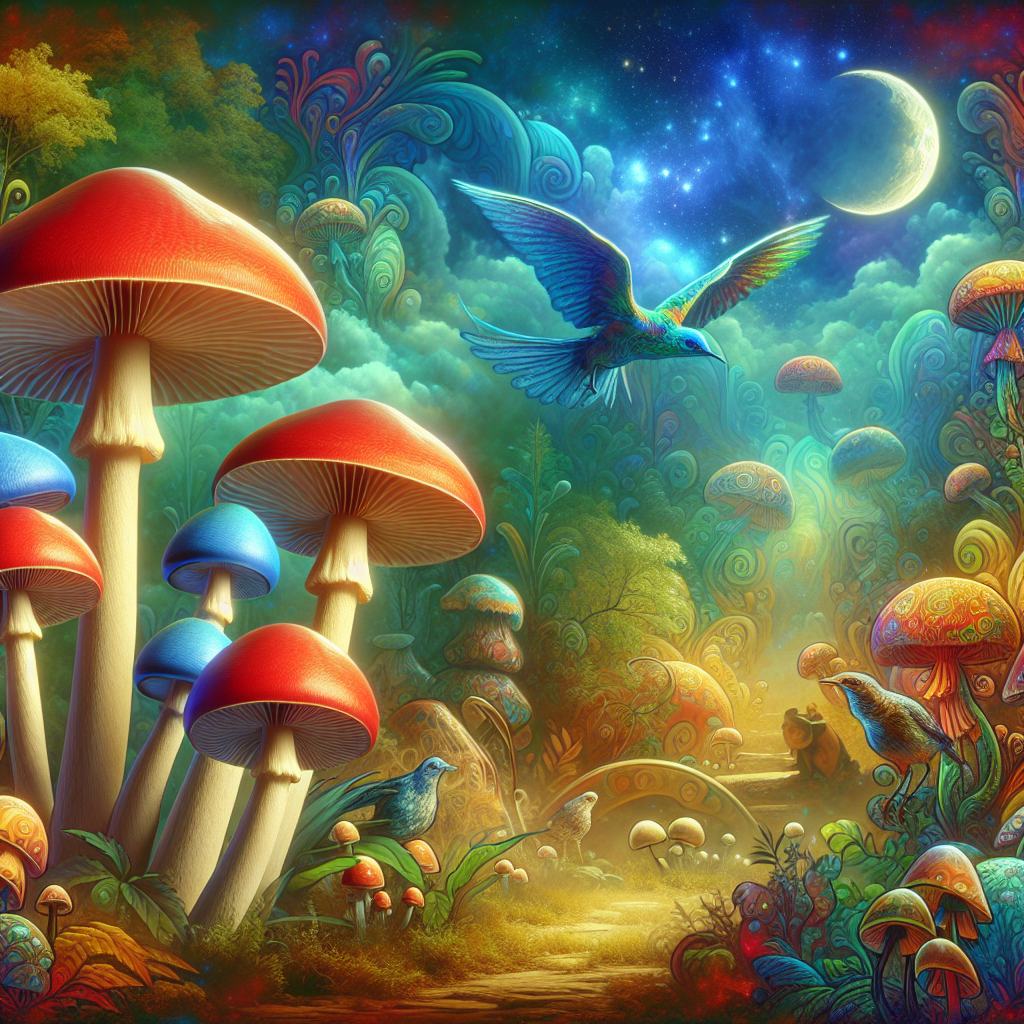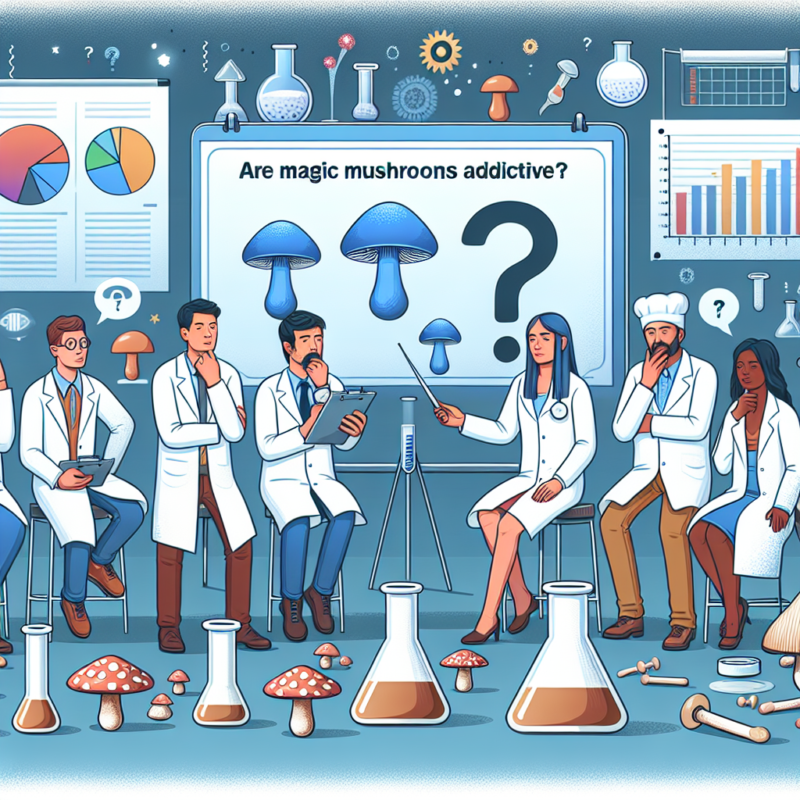Blog
are magic mushrooms addictive
Long-Term Effects of Regular Magic Mushroom Use on Addiction

Magic mushrooms, also known as psilocybin mushrooms, have been used for centuries for their hallucinogenic properties. While many people use them recreationally or for spiritual purposes, there is a growing concern about the potential for addiction with regular use. But are magic mushrooms truly addictive?
Research on the addictive potential of magic mushrooms is limited, but studies have shown that psilocybin, the active ingredient in magic mushrooms, does not appear to be physically addictive. Unlike drugs like heroin or cocaine, which can create physical dependence and withdrawal symptoms, psilocybin does not seem to have the same effect on the brain’s reward system.
However, just because magic mushrooms may not be physically addictive does not mean that they are completely without risk. Some people may develop a psychological dependence on magic mushrooms, craving the intense hallucinogenic experiences they provide. This can lead to a pattern of regular use that can be difficult to break.
Long-term use of magic mushrooms can also have other negative effects on mental health. Some studies have suggested that regular use of psilocybin can lead to an increased risk of developing mental health disorders such as depression, anxiety, and psychosis. This is especially true for individuals who have a history of mental health issues or who are predisposed to developing these conditions.
In addition to the potential for psychological dependence and mental health issues, regular use of magic mushrooms can also have a negative impact on a person’s life in other ways. People who use magic mushrooms frequently may find that their relationships, work, and overall quality of life suffer as a result of their drug use. This can lead to feelings of isolation, loneliness, and despair.
It is important to note that not everyone who uses magic mushrooms will develop an addiction or experience negative consequences. Some people may use them occasionally without any issues, while others may find that they are unable to control their use and experience negative effects as a result.
If you or someone you know is struggling with an addiction to magic mushrooms or any other substance, it is important to seek help. There are many resources available for individuals who are looking to overcome their addiction and regain control of their lives. Treatment options may include therapy, support groups, and medication-assisted treatment.
In conclusion, while magic mushrooms may not be physically addictive in the same way that other drugs are, they can still have a negative impact on a person’s life and mental health. Regular use of magic mushrooms can lead to psychological dependence, mental health issues, and other negative consequences. It is important to be aware of the risks associated with magic mushroom use and to seek help if you or someone you know is struggling with addiction.
Personal Stories of Overcoming Magic Mushroom Addiction
Magic mushrooms, also known as psilocybin mushrooms, have been used for centuries for their hallucinogenic effects. While some people use them recreationally or for spiritual purposes, there is a growing concern about the potential for addiction to these powerful substances. But are magic mushrooms truly addictive?
To answer this question, it is important to understand how addiction works. Addiction is a complex disease that involves compulsive drug seeking and use, despite harmful consequences. It is characterized by changes in the brain that affect a person’s self-control and ability to resist cravings. While some substances, such as heroin or cocaine, are known to be highly addictive, the addictive potential of magic mushrooms is less clear.
Research on the addictive properties of magic mushrooms is limited, but studies suggest that they are not physically addictive. Unlike drugs like heroin or cocaine, magic mushrooms do not cause physical dependence or withdrawal symptoms when use is stopped. However, this does not mean that they are completely safe or non-addictive.
Psychological addiction, also known as substance use disorder, can still occur with magic mushrooms. People who use these substances regularly may develop a psychological dependence on them, craving the euphoric and hallucinogenic effects they produce. This can lead to compulsive use and difficulty controlling or stopping their use, even when it causes negative consequences in their lives.
Personal stories of individuals who have struggled with magic mushroom addiction shed light on the potential for psychological dependence. Many people report feeling a strong urge to use magic mushrooms again after experiencing the intense and profound effects of the drug. Some describe feeling a sense of longing or emptiness when they are not under the influence of the drug, leading them to seek out more mushrooms to recapture the experience.
One individual, who we will call Sarah, shared her story of overcoming magic mushroom addiction. Sarah began using magic mushrooms in college as a way to escape from stress and anxiety. She found that the drug helped her relax and feel more connected to the world around her. However, as she continued to use magic mushrooms, she noticed that she was using them more frequently and in larger doses to achieve the same effects.
Sarah’s drug use began to interfere with her relationships, work, and overall well-being. She realized that she had developed a psychological dependence on magic mushrooms and knew that she needed to make a change. With the support of her friends and family, Sarah sought help from a therapist who specialized in substance abuse.
Through therapy, Sarah was able to address the underlying issues that led to her drug use and develop healthier coping mechanisms. She learned to manage her stress and anxiety in more constructive ways, without relying on magic mushrooms. With time and effort, Sarah was able to break free from her addiction and live a fulfilling and drug-free life.
Sarah’s story is just one example of how individuals can overcome magic mushroom addiction with the right support and treatment. While magic mushrooms may not be physically addictive, they can still have a powerful impact on a person’s mental health and well-being. It is important for individuals who are struggling with magic mushroom addiction to seek help and support from professionals who can guide them on the path to recovery. With determination and perseverance, it is possible to break free from the grip of addiction and live a fulfilling and drug-free life.
